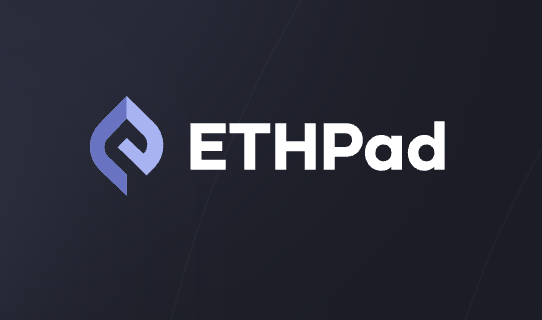Delegated proof-of-stake (DPoS) is an advanced consensus mechanism in blockchain technology, designed to enhance scalability, efficiency, and democratic governance. This article delves into the intricacies of DPoS, exploring its origins, functionality, and differences from other consensus mechanisms like proof-of-stake (PoS).
Evolution of Consensus Mechanisms
Blockchain technology has revolutionized digital transactions through its decentralized nature and various consensus mechanisms. These mechanisms ensure that no central authority controls the blockchain’s record of transactions and data. Instead, network participants validate transactions and add new blocks to the chain.
Proof-of-Work (PoW) and Proof-of-Stake (PoS)
The Bitcoin blockchain introduced the first consensus mechanism, known as proof-of-work (PoW). However, PoW has been criticized for its high energy consumption. To address this, proof-of-stake (PoS) was introduced in 2012 by Sunny King and Scott Nadal. PoS aims to reduce energy consumption by allowing participants to validate transactions based on the number of tokens they hold.
Introduction to Delegated Proof-of-Stake (DPoS)
Delegated proof-of-stake (DPoS) was introduced by Daniel Larimer in 2014 as an enhancement to the traditional PoS mechanism. Larimer’s vision for DPoS aimed to improve efficiency and scalability. The concept was first shared in a Bitcointalk forum post, leading to the practical implementation of DPoS with the launch of BitShares in 2015. Since then, DPoS has been adopted by various projects, including Steem and EOS, with EOS conducting one of the largest initial coin offerings (ICOs) in 2017.
How DPoS Differs from Other Consensus Mechanisms
DPoS is distinct from traditional PoS in its approach to block validation. While PoS relies on stakeholders to validate transactions directly, DPoS uses a voting system to elect delegates for this purpose. This democratic process addresses some limitations of the standard PoS algorithm by distributing the power to validate transactions among elected representatives rather than concentrating it in the hands of a few wealthy stakeholders.
Democratic Governance
In a DPoS system, network users vote to delegate block validation rights to a select group of witnesses or block producers. This democratic process ensures a fair distribution of power and enhances the scalability of the network. The elected delegates are responsible for validating blocks, leading to faster transaction confirmation times.
How DPoS Works
The core mechanism of DPoS revolves around voting, delegation, and validation. It involves four key participants: voters, witnesses (or block producers), delegates, and validators.
Voters
Every network participant holding the native token can become a voter in a DPoS system, with no minimum token requirement. Voters play a crucial role in the network’s governance by electing witnesses and delegates and participating in decision-making processes through governance proposals. Voting power is directly proportional to the number of tokens held, meaning users with more tokens have greater influence.
Voters can choose to cast their own votes or delegate their voting rights to another individual. Their primary responsibility is to select trustworthy and competent candidates to ensure the network’s smooth functioning and security.
Witnesses (or Block Producers)
Witnesses, also known as block producers, are elected by the voters to validate transactions and create new blocks. They are crucial to the block production process and are incentivized to maintain the network’s integrity and efficiency. The limited number of elected witnesses enhances the network’s scalability and speeds up transaction confirmations.
Delegates
Delegates are responsible for maintaining the network’s performance and security. They implement network upgrades, propose changes, and ensure the system runs smoothly. Delegates are also elected by voters and play a vital role in the network’s governance.
Validators
Validators verify the accuracy of transactions and blocks created by witnesses. They ensure that all transactions are legitimate and help maintain the overall security of the blockchain. Validators work alongside witnesses and delegates to uphold the network’s integrity.
Benefits of DPoS
DPoS offers several advantages over other consensus mechanisms:
- Enhanced Scalability: The limited number of elected delegates allows for faster transaction processing and improved network scalability.
- Democratic Governance: The voting system ensures a fair distribution of power among network participants, enhancing the network’s decentralization.
- Efficiency: DPoS streamlines the block validation process, leading to quicker transaction confirmation times.
- Security: The election of trustworthy and competent delegates and witnesses enhances the network’s overall security and integrity.
Conclusion
Delegated proof-of-stake (DPoS) represents a significant evolution in blockchain consensus mechanisms. By incorporating a democratic voting system, DPoS enhances scalability, efficiency, and governance. As blockchain technology continues to evolve, DPoS stands out as a promising solution for achieving high performance and decentralized governance in the cryptocurrency industry.
Personal Note From MEXC Team
Check out our MEXC trading page and find out what we have to offer! There are also a ton of interesting articles to get you up to speed with the crypto world. Lastly, join our MEXC Creators project and share your opinion about everything crypto! Happy trading! Learn about interoperability now!
Join MEXC and Get up to $10,000 Bonus!
Sign Up


